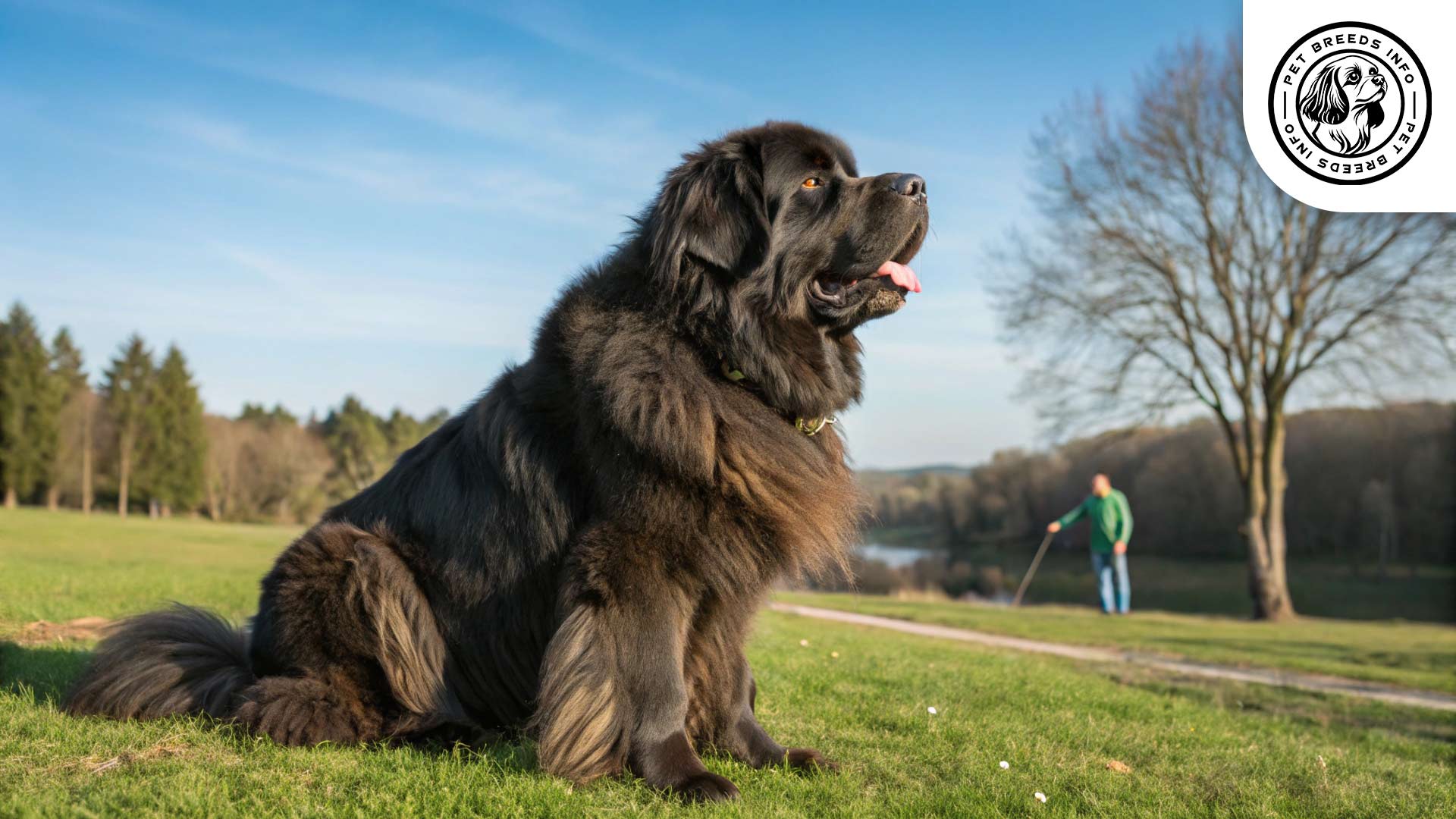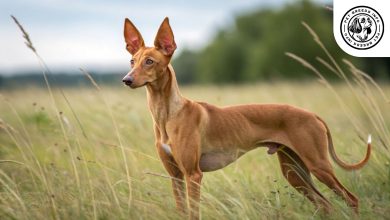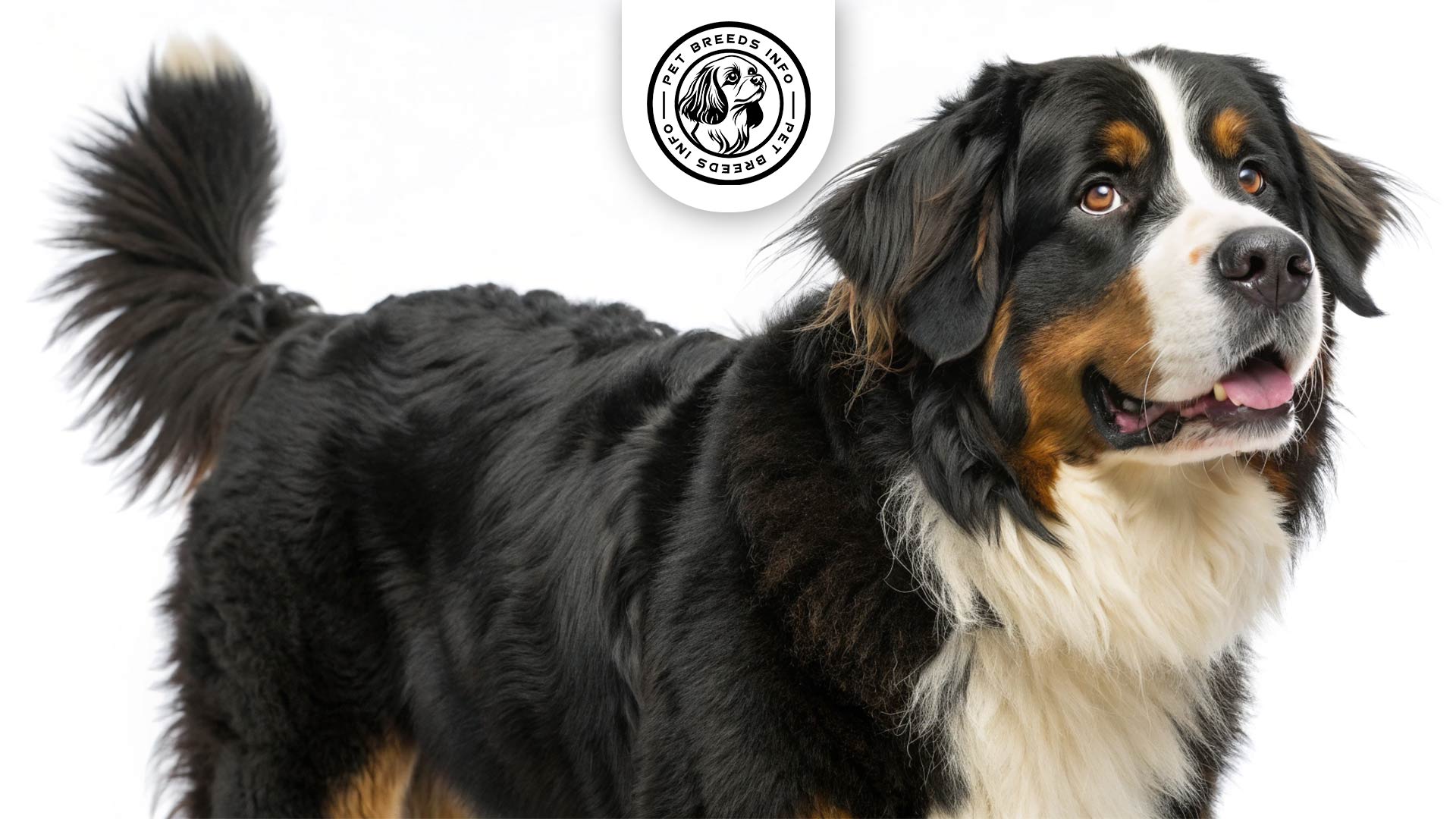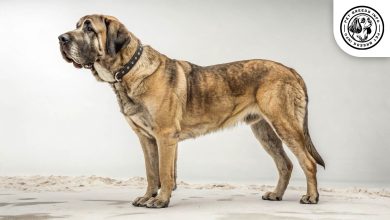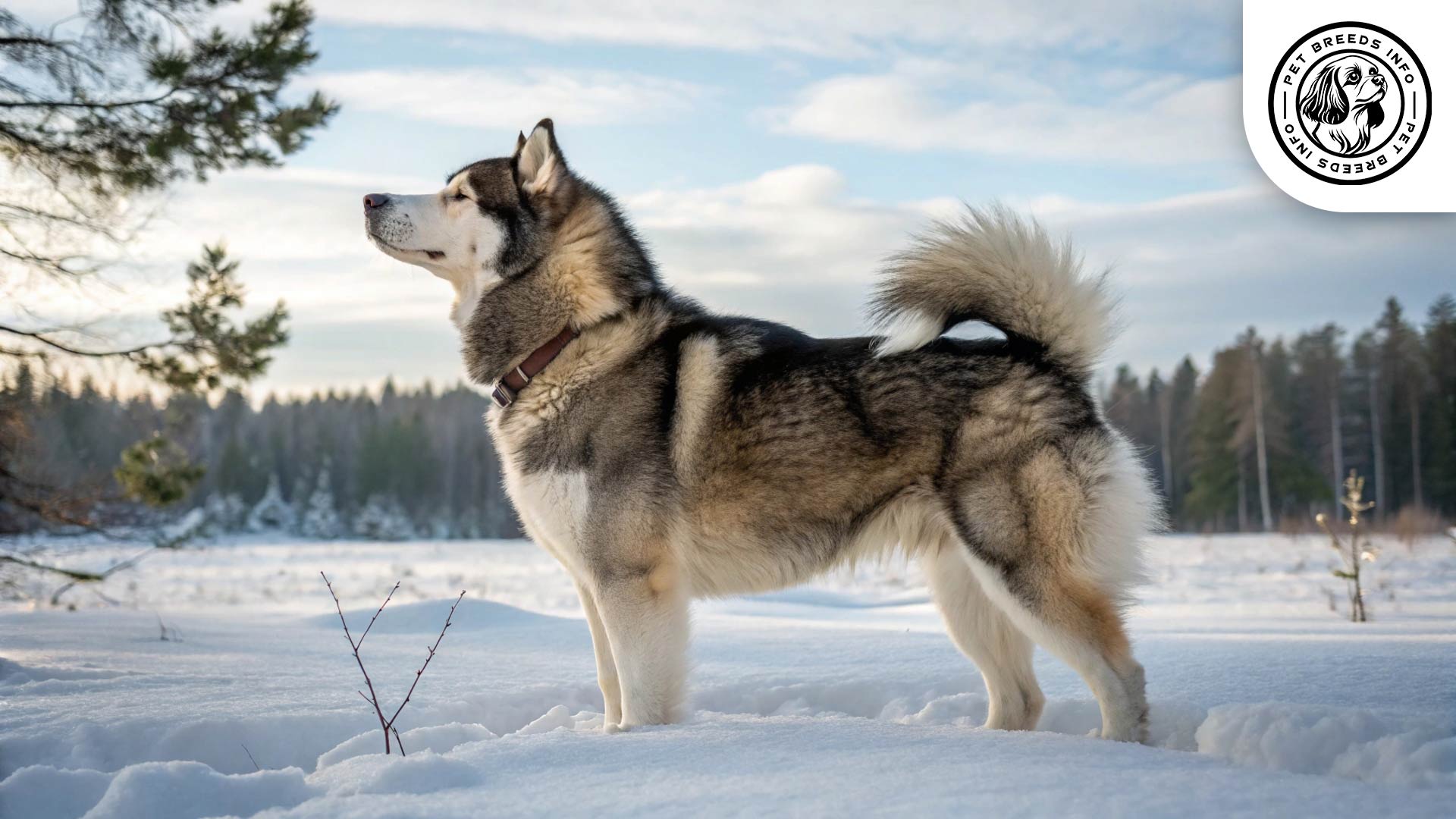Newfoundland Dog Breed: Size, Health, Price & Personality
General Introduction of the Breed
The Newfoundland Dog, also known as “Newfie,” is a large working breed that originated in Newfoundland, Canada. It was originally bred for water rescue and assisting fishermen. These dogs are known for their strength, intelligence, and gentle temperament.
Table of Contents
| Color | Black, brown, gray, Landseer (white with black patches) |
| Weight | Males: 130-150 lbs (59-68 kg), Females: 100-120 lbs (45-54 kg) |
| Lifespan | 9-12 years |
| Diet | High-quality diet with proteins, healthy fats, and essential vitamins. Dry kibble, wet food, or raw diet. Portions divided into two meals per day. Avoid chocolate, onions, grapes, and fatty foods. |
| Care | Daily exercise (walks, swimming), frequent brushing (at least 3 times a week), regular grooming (bathing, nail trimming, ear cleaning, dental care), provide ample space, keep cool in warm climates. |
| Health | Prone to hip and elbow dysplasia, subaortic stenosis, cystinuria, and bloat. Routine veterinary visits, vaccinations, and preventive care are necessary. |
| Nature | Intelligent, gentle, affectionate, loyal, good with children and other pets, moderate energy levels, minimal hunting instincts, sensitive to surroundings. |
| Price | Puppy from a reputable breeder: $1,500 – $3,500. Adoption from shelters or rescues is also an option. |
Physical Characteristics
Newfoundlands Dog are large dogs with males typically weighing between 130 to 150 pounds and standing 27 to 29 inches tall. Females are slightly smaller, usually weighing 100 to 120 pounds and measuring 25 to 27 inches in height.
Their coat is thick, water-resistant, and long. Common colors include black, brown, gray, and Landseer (white with black patches).
They have expressive dark brown eyes, medium-sized, triangular ears that hang close to the head, and a broad tail that is often carried low.
One of their distinctive features is their webbed paws, which make them excellent swimmers.
Read More: Lhasa Apso Dog
Personality and Temperament
Newfoundlands are highly intelligent and easy to train. They are gentle giants with a calm and affectionate nature.
They have moderate energy levels and require regular but not overly intense exercise.
They are extremely loyal and develop strong bonds with their owners. They are especially good with children and are often referred to as “nanny dogs.” They are also friendly toward other pets.
They have minimal hunting instincts and prefer play over chasing prey.
They are sensitive to their surroundings and respond well to a stable and caring environment.
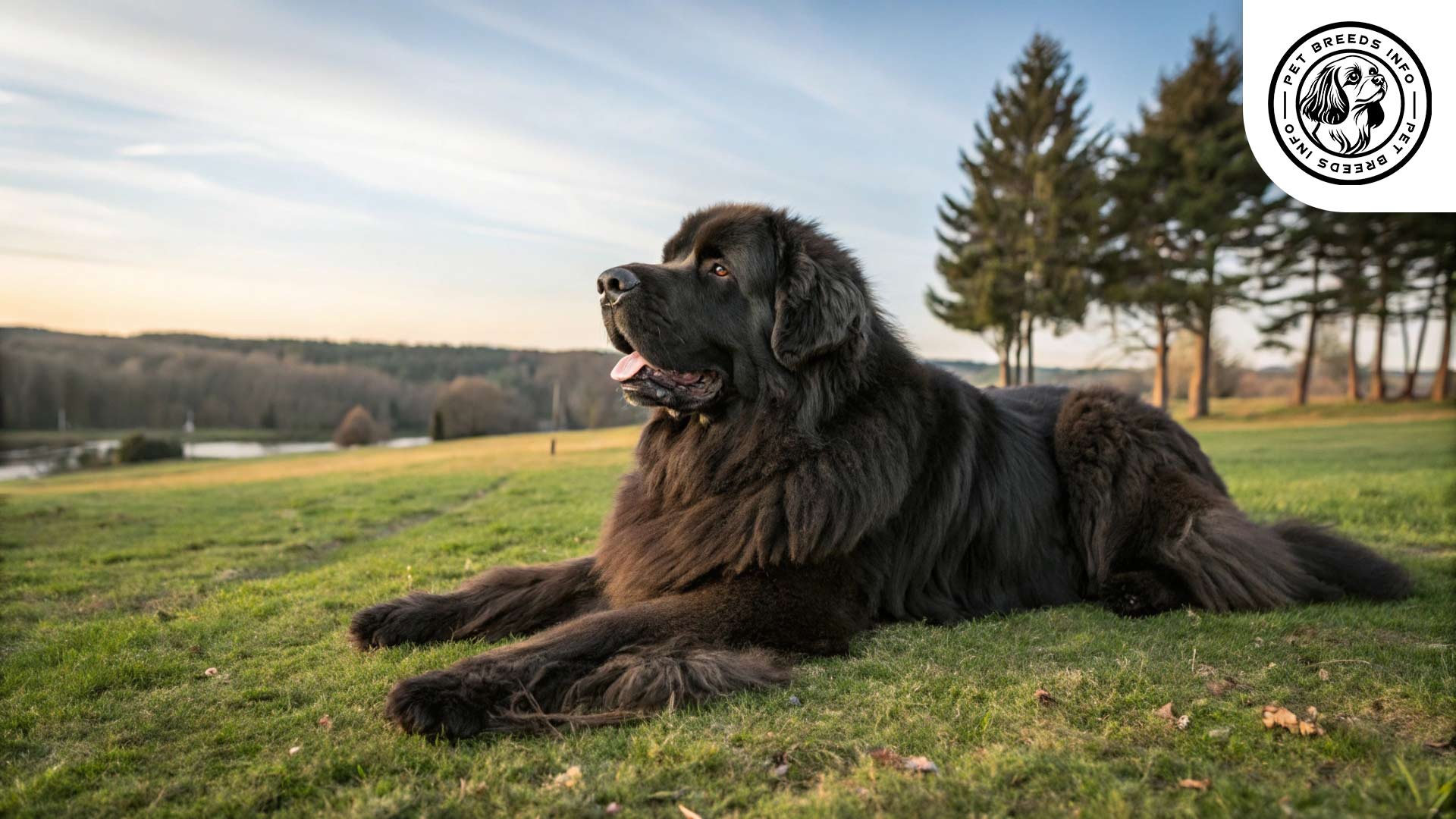
Care and Maintenance Requirements
Newfoundlands Dog require daily exercise, including walks and swimming sessions, to maintain their health.
They thrive in homes with ample space but can adapt to apartment living if provided with adequate exercise.
Due to their thick coat, they shed heavily and require frequent brushing, at least three times a week.
They are more tolerant of cold weather than heat, and owners should ensure they are kept cool in warmer climates.
Regular grooming, including bathing, nail trimming, ear cleaning, and dental care, is essential for their well-being.
Diet and Nutrition
Newfoundlands benefit from a high-quality diet that includes proteins, healthy fats, and essential vitamins. Dry kibble, wet food, or a raw diet may be suitable, depending on the dog’s individual needs.
They should avoid foods like chocolate, onions, grapes, and overly fatty foods.
Portions should be based on the dog’s weight and activity level, typically divided into two meals per day.
Read More: Karelian Bear Dog
Health and Common Medical Issues
Newfoundlands are prone to genetic health conditions such as hip and elbow dysplasia, heart diseases like subaortic stenosis, and cystinuria.
They have an average lifespan of 9 to 12 years.
Routine veterinary visits, vaccinations, and preventive care are necessary for maintaining overall health.
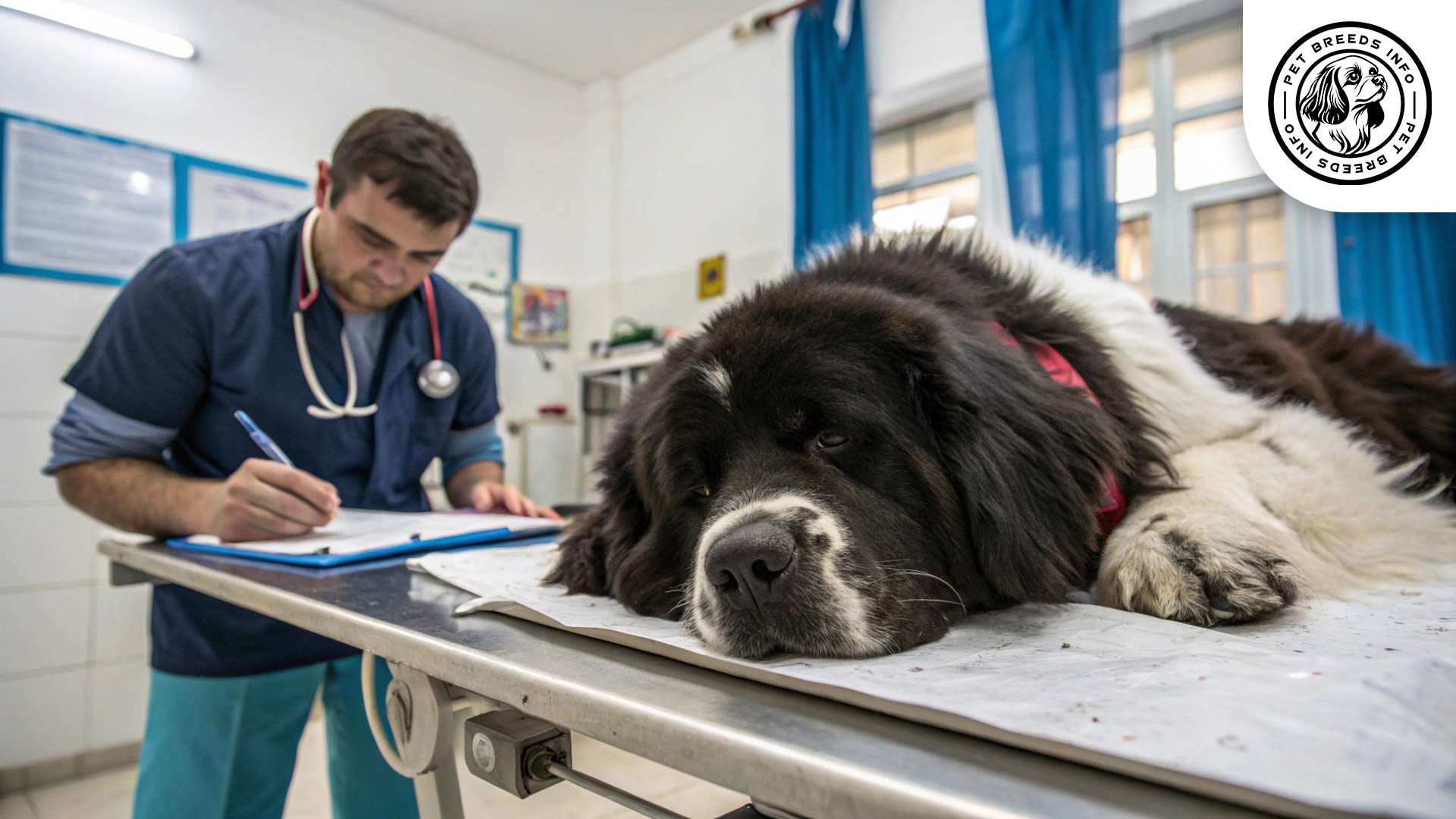
Training and Behavior Management
Newfoundlands are highly trainable due to their intelligence and eagerness to please.
Early socialization and positive reinforcement training methods work best.
Obedience training is important, especially due to their large size.
Reward-based training helps reinforce good manners and prevent stubbornness.
Interaction with Other Animals and Humans
Newfoundlands are great with children and are known for their protective yet gentle nature.
They get along well with other pets and are generally social dogs.
They make excellent family dogs but may also suit individuals who can provide consistent attention.
They are affectionate and do not enjoy being left alone for long periods.
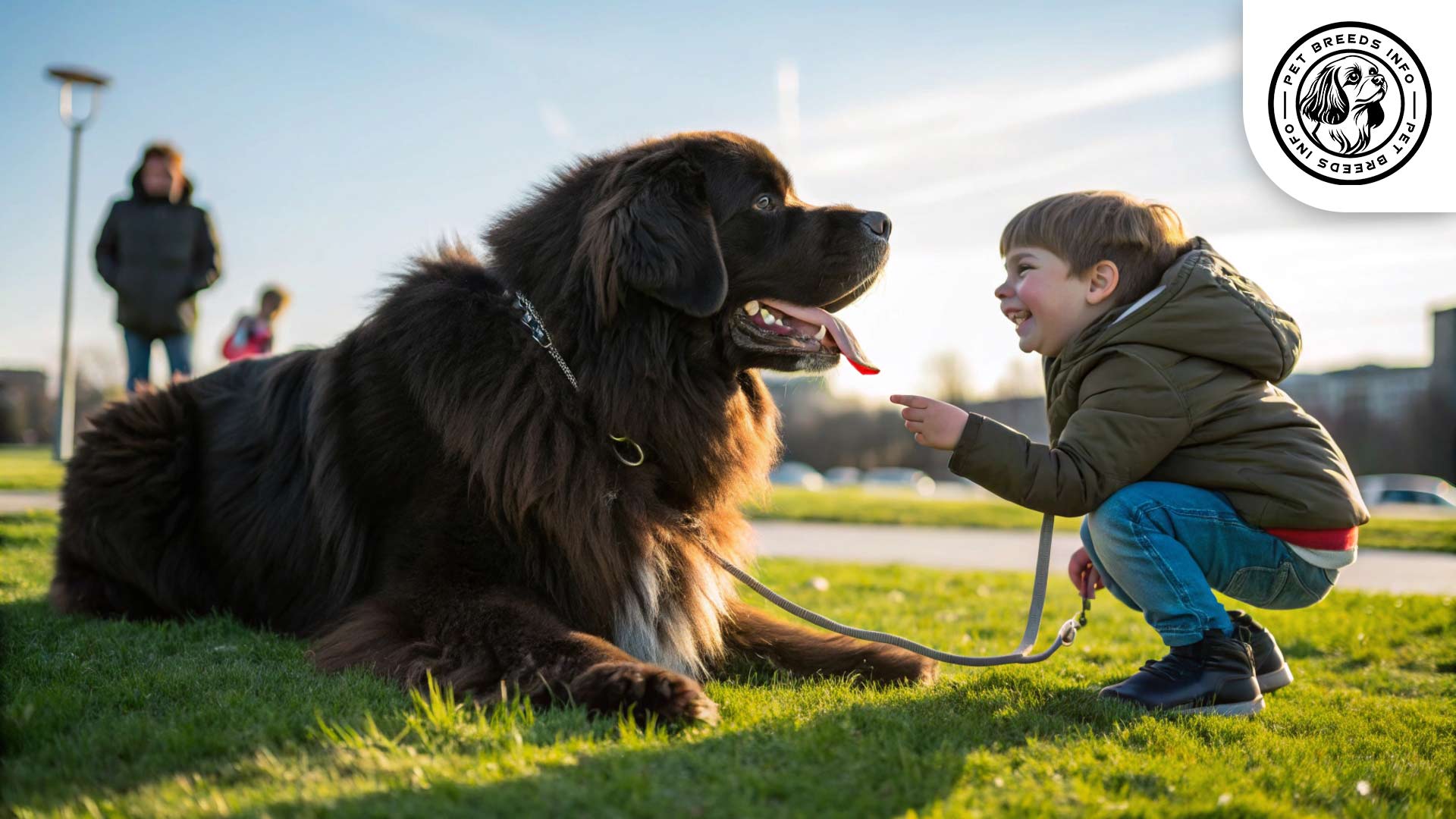
Price and Availability
The price for a Newfoundland puppy from a reputable breeder typically ranges from $1,500 to $3,500, depending on lineage and location.
Adoption from shelters or Newfoundland rescues is also an option and can be more affordable.
Potential owners should ensure the breeder is reputable and practices ethical breeding.
Read More: Jack Russell Terrier Dog
Conclusion and Final Thoughts
The Newfoundland is a loving, intelligent, and gentle giant, making it an excellent family pet.
It requires a home with sufficient space, regular grooming, and a commitment to its physical and emotional needs.
For owners who can provide proper care, training, and companionship, the Newfoundland is a wonderful and loyal companion.
FAQ
How much exercise does a Newfoundland need?
Newfoundlands require daily exercise, including walks and swimming sessions, to maintain their health. However, they do not need overly intense exercise.
Are Newfoundlands good with children?
Yes, Newfoundlands are excellent with children. They are known for their gentle and protective nature and are often referred to as “nanny dogs.”
How often do Newfoundlands need to be groomed?
Due to their thick coat, Newfoundlands shed heavily and require frequent brushing, at least three times a week. Regular grooming, including bathing, nail trimming, ear cleaning, and dental care, is also essential.
What are some common health issues in Newfoundlands?
Newfoundlands are prone to genetic health conditions such as hip and elbow dysplasia, heart diseases like subaortic stenosis, and cystinuria. They are also at risk for bloat (gastric dilatation-volvulus).
What is the average lifespan of a Newfoundland?
The average lifespan of a Newfoundland is 9 to 12 years.
